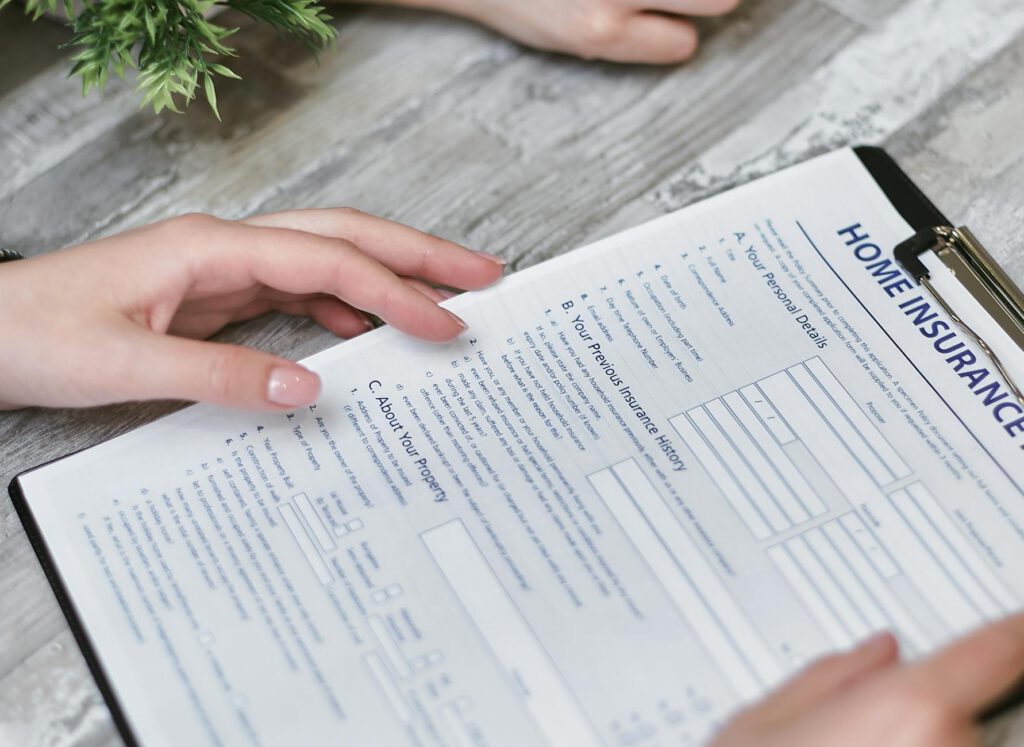Introduction
Running a home-based business offers flexibility and cost savings, but it also comes with unique risks. Many entrepreneurs assume their homeowner’s insurance covers business-related liabilities—only to discover gaps when disaster strikes. Whether you sell handmade crafts, offer consulting services, or run an e-commerce store, having the right insurance policies is crucial to protect your assets, income, and peace of mind.
This guide explores the essential insurance policies every home-based business should consider, along with practical steps to secure coverage, real-world examples, and expert tips to help you make informed decisions.
Why Home-Based Businesses Need Specialized Insurance
A standard homeowner’s or renter’s insurance policy rarely covers business-related losses. For example, if a client slips and falls during a meeting at your home, your homeowner’s insurance may deny the claim, leaving you personally liable. Similarly, stolen business equipment or a data breach could result in significant out-of-pocket expenses.
Specialized business insurance fills these gaps, ensuring you’re protected against:
– Property damage or theft of business assets
– Liability claims from clients or visitors
– Professional errors (e.g., incorrect advice or missed deadlines)
– Cyber threats and data breaches
Below, we break down the key policies to consider.
1. Home-Based Business Insurance
What It Covers
This policy is tailored for small home businesses and typically includes:
– Business property coverage: Protects equipment, inventory, and supplies.
– Liability protection: Covers injuries or property damage caused by your business operations.
– Loss of income: Compensates for interruptions (e.g., after a fire or natural disaster).
Example
A freelance graphic designer’s home office is damaged in a flood. While their homeowner’s insurance covers structural repairs, their business insurance reimburses the lost computer, design software, and client files.
2. General Liability Insurance
Why It’s Essential
Even home-based businesses interact with clients, vendors, or delivery personnel. General liability insurance covers:
– Bodily injury (e.g., a delivery person tripping on your doorstep).
– Property damage (e.g., spilling coffee on a client’s laptop).
– Advertising injuries (e.g., unintentional copyright infringement).
Steps to Get Covered
- Assess your risks: Do clients visit your home? Do you handle physical products?
- Compare quotes: Use providers like Hiscox or Next Insurance for affordable options.
- Bundle policies: Some insurers offer discounts when combining liability and property coverage.
3. Professional Liability Insurance
Who Needs It
Also called “errors and omissions (E&O) insurance,” this policy protects service-based businesses (consultants, coaches, accountants) from claims of negligence, mistakes, or undelivered results.
Real-World Scenario
A marketing consultant accidentally deletes a client’s campaign data. Professional liability insurance covers the legal fees and compensation costs.
4. Business Owner’s Policy (BOP)
What It Includes
A BOP bundles general liability and property insurance at a lower cost than separate policies. It’s ideal for home businesses with physical assets or moderate risk exposure.
Tools to Evaluate Needs
- Online calculators: The Insurance Information Institute (III) offers tools to estimate coverage limits.
- Industry benchmarks: Trade associations often provide recommended coverage levels.
5. Cyber Liability Insurance
Rising Threats for Home Businesses
Cyberattacks target businesses of all sizes. If you store client data, process payments, or rely on digital tools, this policy covers:
– Data breach notifications and credit monitoring.
– Ransomware attacks.
– Legal fees from privacy lawsuits.
Prevention Tips
- Use encrypted payment processors (e.g., PayPal, Stripe).
- Train employees on phishing scams.
- Enable multi-factor authentication (MFA).
6. Workers’ Compensation
When It Applies
If you hire employees (even part-time), most states require workers’ comp to cover medical bills and lost wages for work-related injuries.
Cost-Saving Strategies
- Implement safety protocols (e.g., ergonomic workstations).
- Pay premiums based on payroll, not revenue.
Additional Considerations
Auto Insurance for Business Use
If you use your car for deliveries or client meetings, inform your auto insurer. Personal policies often exclude business-related accidents.
Umbrella Insurance
For extra protection, umbrella insurance extends liability limits beyond standard policies, useful for high-net-worth entrepreneurs.
FAQs
Q: Will my homeowner’s insurance cover my home business?
A: Rarely. Most policies exclude business activities or offer minimal coverage. Always disclose your business to your insurer.
Q: How much does home-based business insurance cost?
A: Premiums vary by industry and coverage but typically range from $250 to $1,500 annually.
Q: Can I deduct insurance premiums on my taxes?
A: Yes, business insurance is generally tax-deductible as an ordinary expense.
Conclusion
Protecting your home-based business with the right insurance isn’t just prudent—it’s a financial safeguard against unforeseen disasters. Start by evaluating your risks, comparing policies, and consulting an insurance agent to tailor coverage to your needs. With the proper protections in place, you can focus on growing your business with confidence.
By prioritizing these policies, you’ll mitigate risks, comply with legal requirements, and ensure long-term stability. Don’t wait for a crisis to expose vulnerabilities; act now to secure your business’s future.

